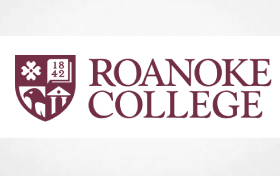Roanoke College faculty voted Wednesday to approve the creation of a transdisciplinary Cannabis Studies Program that will allow students to obtain a Bachelor of Science in either the science of cannabis or the social justice and policy issues surrounding cannabis regulation.
In launching this new academic program, Roanoke College will become the first institution of higher learning in Virginia – and one of only a handful on the East Coast – to offer a four-year degree in this rapidly growing field, positioning graduates for career success in an industry that is expected to reach at least $40 billion this year.
“I commend the faculty for developing a transdisciplinary academic program that fills a significant educational gap,” said Kathy Wolfe, vice president for academic affairs and dean of the College. “With this program, Roanoke College continues to lead in science, policy, business and community engagement.”
Roanoke College aims to guide the commonwealth to improve understanding and application of knowledge around cannabis, and it strives to be a national leader in establishing a standard scientific, public policy and business education for this developing industry. In addition, college leaders will work alongside community leaders and the Office of Campus Safety to strengthen drug education in the community.
The College will begin offering the new majors, along with a minor, in fall 2024.
“Students are interested in this industry,” said Biology Professor DorothyBelle “DB” Poli, who holds a Ph.D. in plant biology and led the charge in researching and establishing the new program. “Being the first in the state to approach cannabis from a scholarly perspective is inventive and entrepreneurial. We hope to help bring clarity to tough problems by creating a truly multidisciplinary think tank.”
According to the Pew Research Center, an overwhelming 88% of American adults believe cannabis should be legal for medical use in adults. Cannabis shows great promise as a medical remedy for conditions including cancer, PTSD and opioid addiction — all of which deeply impact communities across Virginia.
As of late 2023, recreational cannabis is legal in 24 states, as well as Guam and Washington, D.C., with many more states approving the use of medical cannabis or CBD/low-THC options. As decriminalization is expected to continue and cannabis use is anticipated to increase in both the commonwealth and the U.S., better education in the field could help inform policy, standards of care and more, while also helping to destigmatize cannabis use, especially within demographics that have been harmed by that stigmatization.
The core curriculum for Roanoke’s Cannabis Studies Program will educate students in the botany and history of cannabis, as well as the policy issues surrounding the industry. Students may then choose one of the two major tracks, both of which culminate in a B.S. The cannabis science track will focus on the science of the industry, exploring botany, biology and chemistry, while the second track will cover the social justice and governmental policy around cannabis legislation, giving students perspective on the history of the plant, its regulation and prohibition in the U.S. and around the world, and the consequences to different population groups. The College will also offer a minor in cannabis studies.
Roanoke will only grow and study hemp varieties of the plant, which contain less than 0.3% THC and have no psychoactive effects. The College will not grow or conduct research with cannabis varieties that contain more than 0.3% THC, so students will not be exposed to any illegal substances. These non-THC-dominant strains of cannabis still provide students with the scientific training needed to be successful in the industry.




















